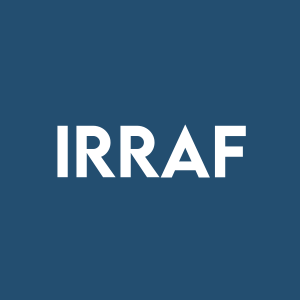IRRAS Announces Release of Clinical Data that Validates Safety and Effectiveness of IRRAflow System in Treating Chronic Subdural Hematomas
IRRAS AB announced positive clinical research findings presented at the 18th Annual Meeting of the Neurocritical Care Society, demonstrating the safety and efficacy of its IRRAflow system in treating chronic subdural hematomas. The research revealed no complications or bleeding recurrence in six patients, with an average hospitalization time of 2.83 days—compared to the U.S. average of six days. These results suggest potential cost savings as chronic subdural hematomas are projected to become the most common cranial neurosurgical condition by 2030. IRRAS aims to expand data collection for future studies.
- Clinical research indicates IRRAflow system is safe and effective for treating chronic subdural hematomas.
- Patients treated with IRRAflow had an average hospitalization time of 2.83 days, significantly lower than the national average of 6 days.
- No complications or bleeding recurrence were reported in the initial patient group.
- None.
STOCKHOLM, Sept. 29, 2020 /PRNewswire/ -- IRRAS AB, a commercial-stage medical technology company with a comprehensive portfolio of innovative products for neurocritical care, today announced the presentation of clinical research at the 18th Annual Meeting of the Neurocritical Care Society (NCS) that showed that the company's IRRAflow system safely treats chronic subdural hematomas while also decreasing complications, bleeding recurrence, and length of hospitalization.
During the event that was held virtually, Dr. Jordan Davies from the University of California Irvine (UCI) Medical Center presented a poster that concludes "Novel, continuous irrigation and drainage of the subdural space following chronic subdural hematoma evacuation is safe and shows decreased recurrence, complications, and length of stay." The research documents UCI's treatment of their initial 6 chronic subdural hematoma patients using the IRRAflow system and shows that these patients experienced no complications or bleeding recurrence and were hospitalized for an average of 2.83 days, which is less than half of the United States' national average of 6 days.
The poster can be viewed at the following link: https://cdn1.digitellinc.com/uploads/ncs/pages/f2507afcf423e7a7d18bd616bb1fdf1a.pdf.
Subdual hematomas are projected to become the most common cranial neurosurgical condition among adults by the year 2030 in the United States1. IRRAflow's potential to reduce complications and length of hospitalization could result in significant overall cost reductions as the total patient population continues to grow.
Additionally, Dr. Davies also presented a second clinical research poster on IRRAflow during the event. This poster, entitled, "Using net output to guide continuous irrigation and drainage of the subdural space following surgical evacuation can safely decrease hospital stay," outlines UCI's treatment approach with IRRAflow and shows that higher rates of irrigation earlier in patient treatment results in increased drainage of blood and shorter overall treatment times.
This poster can be viewed at the following link: https://cdn1.digitellinc.com/uploads/ncs/pages/f3f61e3b417f0a132a152872192c6b42.png.
"We are very pleased that the data generated from UCI's experience with our IRRAflow system is being shared with the scientific community to demonstrate that the positive effect of irrigation does not need to end in the operating room," said Will Martin, President and Chief Commercial Officer of IRRAS. "This early data shows that IRRAflow's ability to irrigate throughout the patient treatment more thoroughly removes collected blood, which can result in better patient outcomes, decreased length of hospitalization, and reduced overall cost to the healthcare system. IRRAS and our physician partners look forward to expanding upon this early data with larger and more impactful data sets in the future."
About IRRAS
IRRAS is a global medical care company focused on delivering innovative medical solutions to improve the lives of critically ill patients. IRRAS designs, develops, and commercializes neurocritical care products that transform patient outcomes and decrease the overall cost of care by addressing complications associated with current treatment methodologies. IRRAS markets and sells its comprehensive, innovative IRRAflow and Hummingbird ICP Monitoring product lines to hospitals worldwide through its direct sales organization in the United States and select European countries as well as an international network of distribution partners.
IRRAS maintains its headquarters in Stockholm, Sweden, with corporate offices in Munich, Germany, and San Diego, California, USA. For more information, please visit www.irras.com.
IRRAS is listed on Nasdaq Stockholm (ticker: IRRAS).
For more information, please contact:
USA
Kleanthis G. Xanthopoulos, Ph.D.
CEO
ir@irras.com
Europe
Sabina Berlin
CFO
+46 73 951 95 02
sabina.berlin@irras.com
The information was released for public disclosure, through the agency of the contact person above, on September 29, 2020 at 10:00 (CET).
1) Balser D, Farooq S, Mehmood T, Reyes M, Samadani U. Actual and projected incidence rates for chronic subdural hematomas in United States Veterans Administration and civilian populations. J Neurosurg. 2015;123(5):1209-1215.
This information was brought to you by Cision http://news.cision.com
![]() View original content:http://www.prnewswire.com/news-releases/irras-announces-release-of-clinical-data-that-validates-safety-and-effectiveness-of-irraflow-system-in-treating-chronic-subdural-hematomas-301139595.html
View original content:http://www.prnewswire.com/news-releases/irras-announces-release-of-clinical-data-that-validates-safety-and-effectiveness-of-irraflow-system-in-treating-chronic-subdural-hematomas-301139595.html
SOURCE IRRAS
FAQ
What were the findings of IRRAS regarding the IRRAflow system presented at the Neurocritical Care Society meeting?
What is the average hospitalization time for patients using the IRRAflow system?
What impact could the IRRAflow system have on healthcare costs?
When was the clinical data for the IRRAflow system presented?







